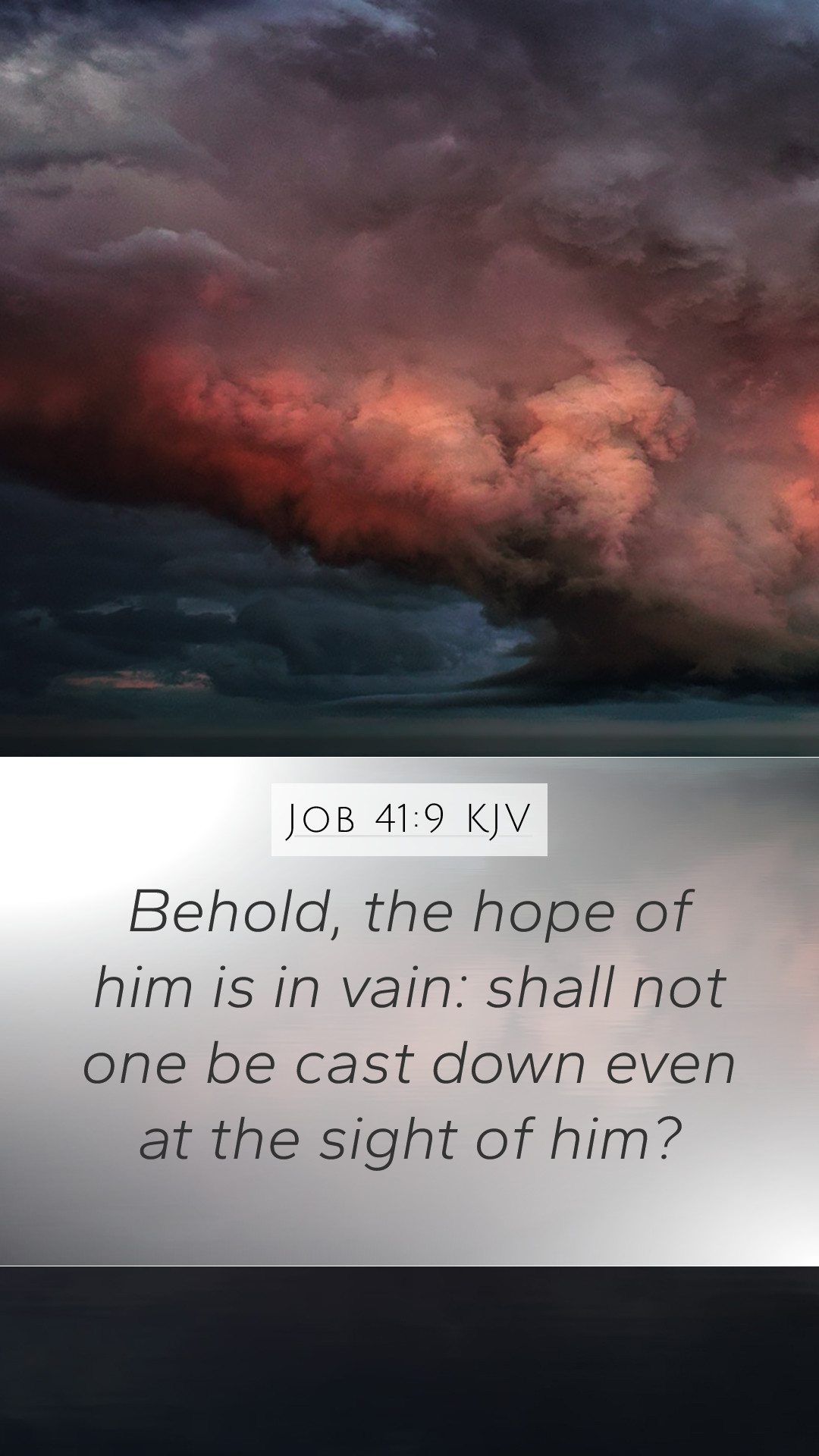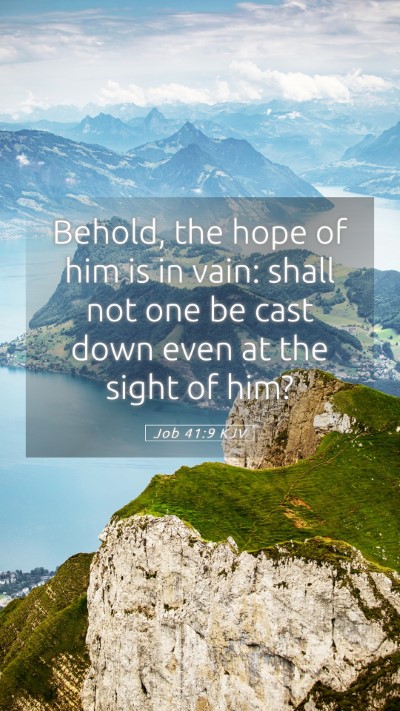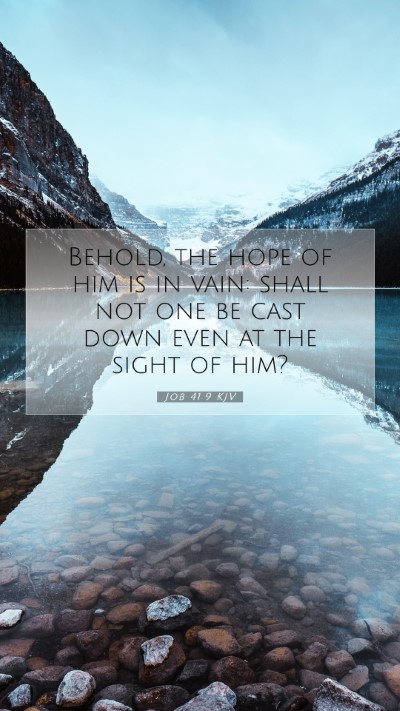Understanding Job 41:9
In the exploration of Job 41:9, we delve into the profound implications of this verse, which states: “Behold, the hope of him is in vain: shall not one be cast down even at the sight of him?” This verse forms part of God’s discourse to Job, revealing the utter sovereignty and power of God over creation, particularly emphasizing His dominion over the mighty Leviathan.
General Overview
Job 41 presents a vivid description of the Leviathan, a mythical sea creature that symbolizes God's unmatched power and the futility of human endeavor against it. This verse emphasizes the idea that trusting in anything other than God is ultimately in vain—particularly when considering the greatness of His creations.
Verse Analysis from Public Domain Commentaries
Matthew Henry’s Commentary
Matthew Henry notes that the Leviathan represents the formidable aspects of God's creation that overwhelm human understanding and strength. The emphasis on hope being in vain encapsulates the theme that anyone who believes they can control or challenge God’s will is fundamentally misguided. This verse calls us to realize our limitations and the need for humility before the divine.
Albert Barnes’ Commentary
Albert Barnes elaborates on the metaphor of the Leviathan, suggesting that it serves as a lesson against arrogance and self-reliance. He posits that attempting to ‘hope’ in one’s own strength in the face of such an overwhelmingly powerful creature (and metaphorically, challenges in life) is senseless. Barnes encourages readers to reflect on their reliance on God rather than on their own abilities or circumstances.
Adam Clarke’s Commentary
Adam Clarke interprets the verse by highlighting its theological implications regarding the nature and character of God. He explains that the “sight” of the Leviathan serves as a reminder of both God’s creative wonders and His divine authority. Clarke stresses that only through acknowledging our insignificance before God can we develop true faith and understanding in our lives.
Key Themes and Insights
- The Futility of Human Hope: The verse underscores the idea that placing hope in anything other than God is ultimately fruitless. The Leviathan is a representation of challenges that are beyond human control.
- The Power of God’s Creation: Reflecting on God’s creations leads to a greater appreciation of His sovereignty and omnipotence.
- Humility Before God: Recognizing our limitations compared to the vastness of God's power fosters humility and reliance on Him.
- The Call to Faith: This verse invites believers to have faith in God’s providence and strength rather than in themselves or worldly resources.
Application in Daily Life
In applying Job 41:9 to our everyday lives, it encourages us to reflect on our own hopes and where we place our trust. Are we relying on our own strength or understanding, or are we turning to God, acknowledging that He is the ultimate authority over all creation?
Related Bible Cross References
- Psalm 104:25-26: A description of Leviathan that reflects God’s creative power.
- Isaiah 27:1: References the Leviathan as a symbol of God’s judgment.
- Job 38:1-11: God speaks to Job about creation and His sovereignty.
Conclusion
Overall, Job 41:9 serves as a profound reminder of the limits of human understanding and strength compared to God's incomparable might. Through the insights derived from public domain commentaries, readers gain a deeper understanding and appreciation of the text, leading to enriched Bible study insights and applications in personal faith.


